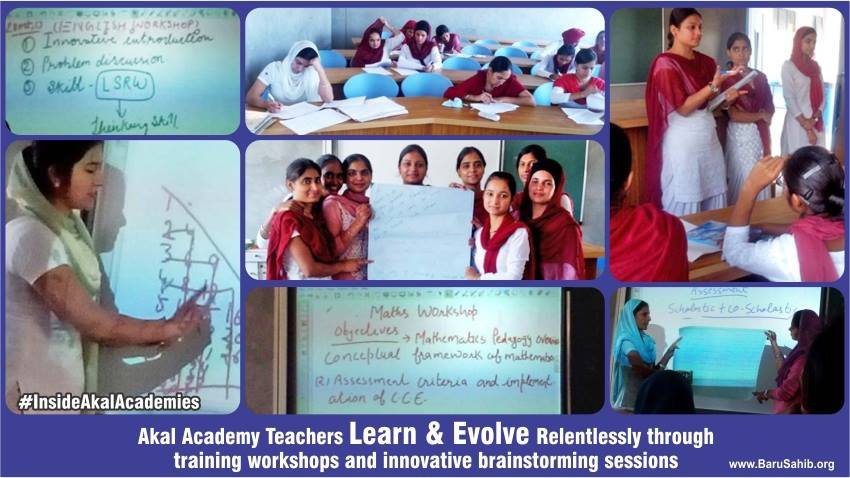At Akal Academies, teachers are regarded as the institution’s lifeblood, tasked with educating rural students. To ensure that these educators are equipped to meet the challenges of their roles, Akal Academy prioritises continuous professional development through
various training workshops and innovative brainstorming sessions. This commitment to learning fosters an environment where teachers are in a perpetual state of growth and adaptation.
A Culture of Constant Learning
The ethos of lifelong learning, deeply rooted in Sikh philosophy, extends beyond students to encompass teachers as well. At Akal Academies, educators actively engage with one another through regular community meetings. These gatherings allow teachers to share their experiences, propose new techniques, and discuss successful outcomes. This collaborative environment not only enhances individual teaching practices but also strengthens the
the collective knowledge of the teaching community.
Implementation of Innovative Ideas
The insights and innovative strategies generated during these meetings are subsequently shared with the honourable Advisor for Health and Education. This advisor evaluates the proposed ideas and formulates new guidelines and policies, which are then disseminated to academies for immediate implementation. This structured approach ensures that the best practices are adopted, allowing for a more effective teaching framework tailored to the unique needs of rural students.
Adapting to Local Contexts
The diverse educational landscapes of rural villages necessitate customised teaching techniques. As articulated by Mrs Manpreet Kaur, a teacher at Akal Academy Cheema, the challenges of teaching
subjects such as English in rural settings differ significantly from those in urban environments. In cities, students benefit from rich exposure to the English language through media and social
interactions, which facilitates learning. Conversely, rural students often lack such exposure, requiring educators to devise specialised strategies to bridge this gap.
Conclusion
Akal Academy teachers’ commitment to learning and evolving is vital for their students’ success. Through ongoing training, collaboration, and adapting teaching methods to local
contexts, these educators enhance their skills and empower their students to thrive in an increasingly competitive world. The ongoing efforts of the teaching community at Akal Academies exemplify the transformative power of education in rural settings.












Add comment